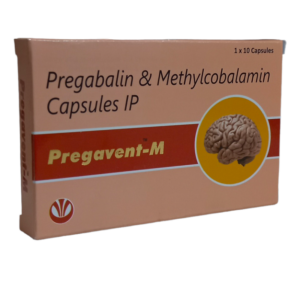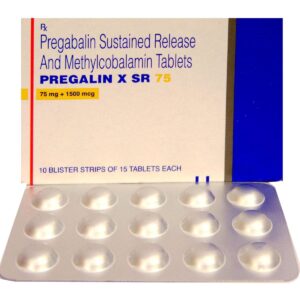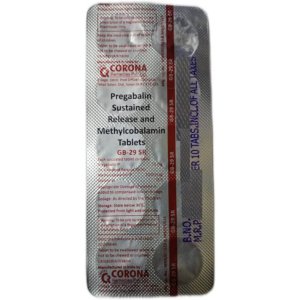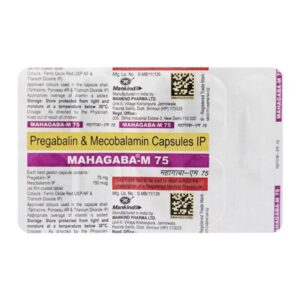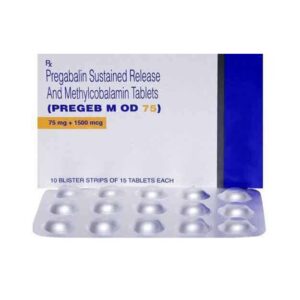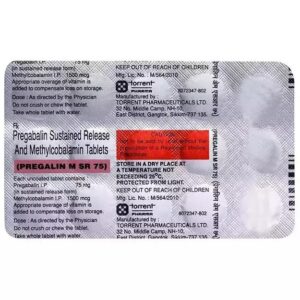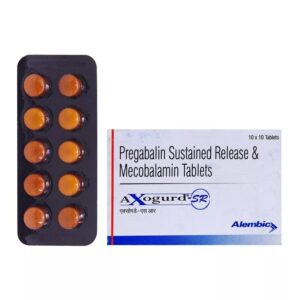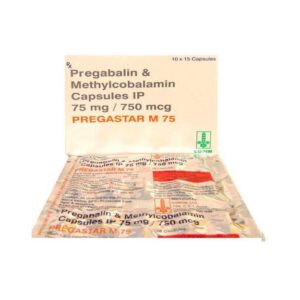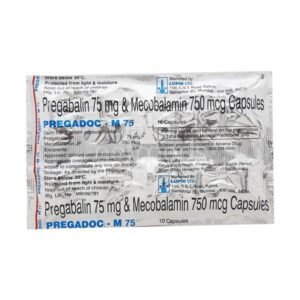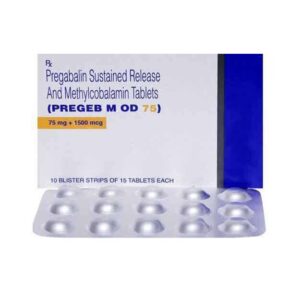METHYLCOBALAMIN + PREGABALIN
Methylcobalamin: Methylcobalamin is a medication that contains a form of vitamin B12. It is used to treat vitamin B12 deficiency, particularly in individuals who have pernicious anemia. This drug is available in the form of a tablet or injection.
The mechanism of action of Methylcobalamin involves its conversion to coenzyme forms, such as methylcobalamin and adenosylcobalamin, which are essential for various biochemical processes in the body. Vitamin B12 is necessary for the formation of red blood cells, DNA synthesis, and proper nerve function.
The dose of Methylcobalamin varies depending on the specific condition and individual needs. Generally, the recommended dose for vitamin B12 deficiency is 1,000 mcg (micrograms) daily for adults. The dosage may be adjusted based on the severity of the deficiency and the patient’s response to treatment. It is important to follow the instructions given by the healthcare provider or read the product label carefully.
Common side effects of Methylcobalamin are usually mild and may include nausea, diarrhea, headache, dizziness, and mild rash. These side effects are generally temporary and tend to subside on their own. However, if any severe or persistent side effects occur, it is important to seek medical attention.
Methylcobalamin is generally considered safe for most individuals when taken as prescribed. However, it may interact with certain medications, such as metformin, and interfere with their absorption. It is advisable to inform the healthcare provider about all the medications, supplements, or medical conditions before starting Methylcobalamin.
Overall, Methylcobalamin is an important medication used to treat vitamin B12 deficiency and its associated conditions. It helps maintain healthy red blood cells, DNA synthesis, and proper nerve function. It is important to follow the prescribed dose and consult with a healthcare provider for appropriate usage and monitoring.
Pregabalin: Pregabalin is a prescription medication that belongs to the class of medications called anticonvulsants. It is primarily used to treat neuropathic pain, epilepsy (seizures), and generalized anxiety disorder.
The exact mechanism of action of Pregabalin is not fully understood. However, it is believed to work by binding to a specific calcium channel in the central nervous system, which reduces the release of certain neurotransmitters involved in pain transmission and seizure activity.
The dose of Pregabalin varies depending on the condition being treated. For neuropathic pain, the usual recommended starting dose is 75 mg taken twice daily (150 mg/day). The dose may be increased to 300 mg/day as needed. For epilepsy, the initial dose is usually 75 mg taken twice daily and increased to a maximum dose of 600 mg/day. For generalized anxiety disorder, the recommended starting dose is 150 mg/day, which may be increased to 300 mg/day if needed.
Common side effects associated with Pregabalin include dizziness, drowsiness, dry mouth, blurred vision, weight gain, and difficulty concentrating. Other less common but potentially serious side effects may include allergic reactions, swelling of the hands or feet, mood changes, suicidal thoughts, and unexplained muscle pain or weakness. It is important to consult a healthcare professional if any severe or persistent side effects occur.
Pregabalin should only be used as directed by a healthcare professional and should not be abruptly discontinued, as withdrawal symptoms may occur. It may interact with other medications, so it is important to inform the healthcare provider about all other medications being taken. As with any medication, it is essential to follow the prescribed dose and seek medical advice if any concerns arise.

